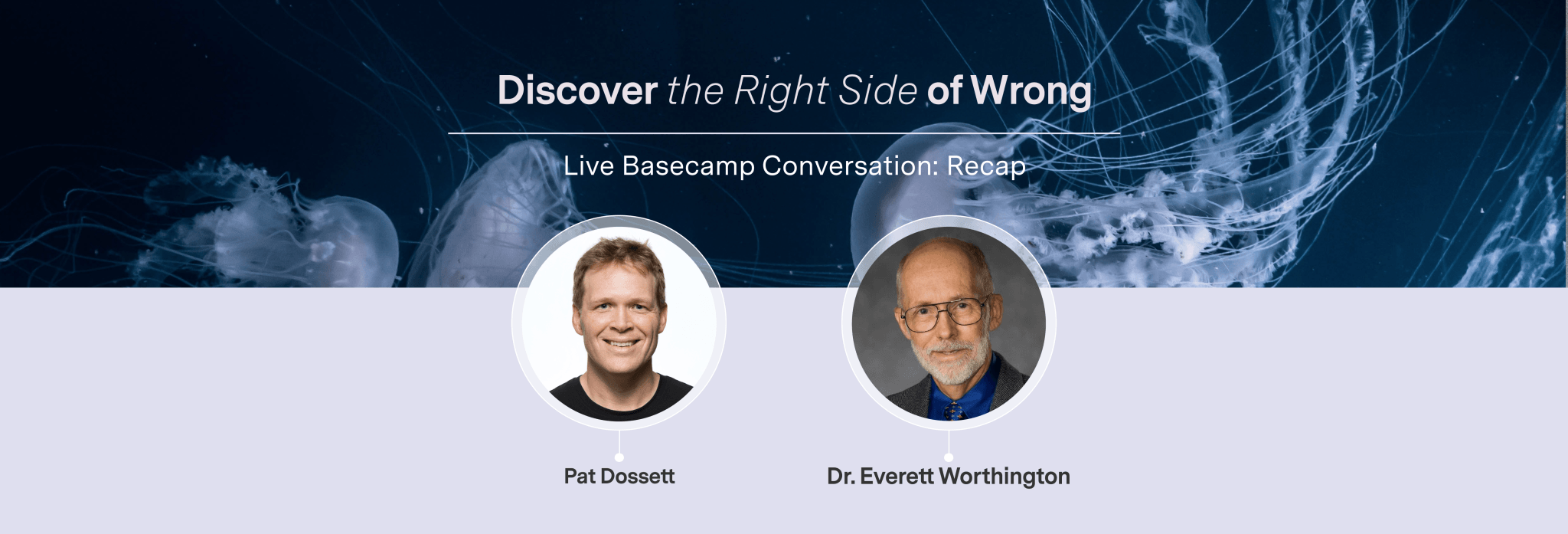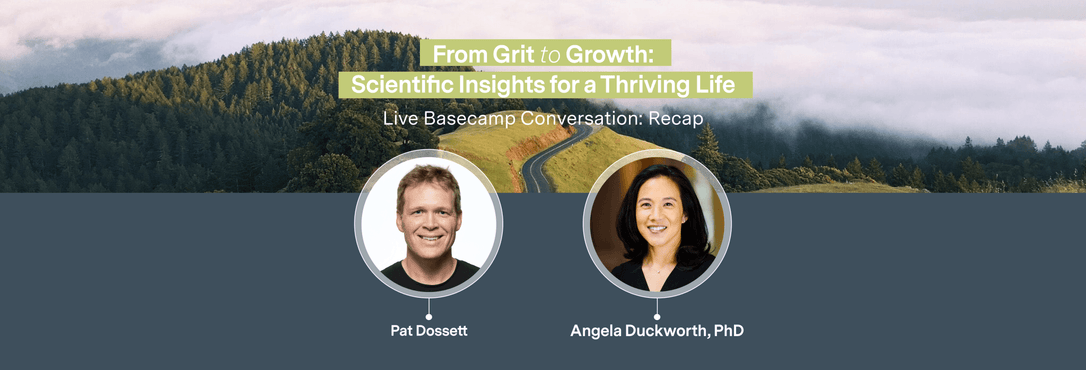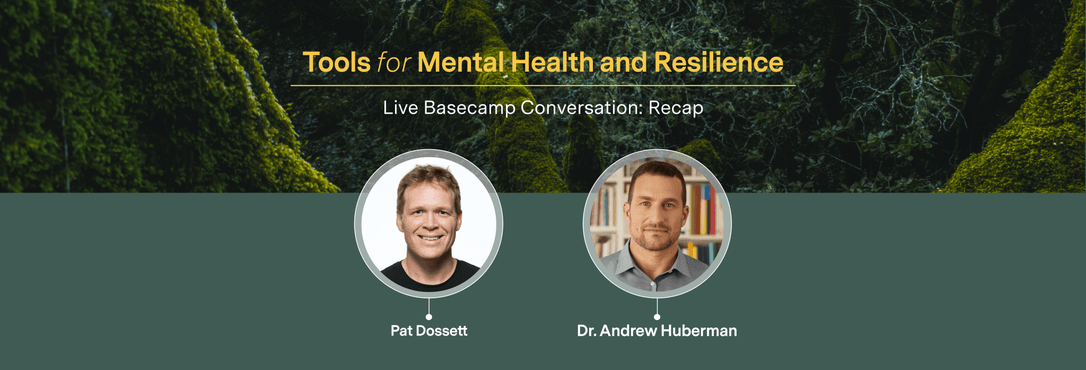Madefor Co-Founder and former Navy SEAL, Pat Dossett, sat down with the world’s leading expert on forgiveness, Dr. Everett Worthington. Dr. Worthington discussed types of forgiveness, why it matters so much, how we can learn to forgive others, and the cost of unforgiveness. Dr. Worthington also took us through doing the complex work of forgiving ourselves.
Forgiveness & The Benefits of Forgiveness
When we define forgiveness, we need to understand there are two different types of forgiveness. The first type is when you decide how to treat someone who’s hurt or offended you. You treat them or the relationship you have with them as valuable. The second type, emotional forgiveness, is more nuanced. This type of forgiveness replaces negative emotions like resentment and bitterness with positive emotions like empathy and understanding. Forgiveness matters because whenever we experience what feels like an injustice to us, it creates automatic computing in our minds, referred to as a “justice gap.” It can be large or small, and forgiveness is one of the only ways to reduce the gap.
So why do we or should we forgive? First, it’s important to recognize that no one inherently deserves forgiveness when they hurt you. It’s something you can give, but you don’t have to. It’s your choice and is an internal thing. That said, there are three types of benefits that forgiveness can bring. You can benefit relationally; after the hurt, you treat them differently, which then causes them to treat you differently. Mentally, when you forgive, it cuts down on rumination, the constant playing over and over of an injustice that only makes it worse each time. Dr. Worthington joked that rumination is the Bad Boy of Mental Health. To forgive is to stop rehearsing the negativity and stop it in its tracks. The final type of benefit is your physical health. Unforgiveness breeds stress and anxiety and can cause a lot of damage to the body. Forgiving takes your body out of the fight-or-flight internal messaging and brings your body back into balance.
We can not only give forgiveness to others; it’s just as important to give it to ourselves as well. However, forgiving ourselves is more complex. Why? You’re coming at things from two points of view at the same time – as the offender and the offended. There’s an inherent double whammy of forgiving when it’s self-directed. You also have to be genuine in your self-forgiveness. You can’t just casually say, “I forgive myself,” when you’re just letting yourself off the hook.
There’s a whole extra level of having to have responsible self-forgiveness. It involves three preliminary steps before the journey to true self-forgiveness can really start. You first have to resolve things with that which you hold sacred, make things right due to the social damage you’ve done, and come to terms with the fact that you may have morally injured yourself by doing something you believe is in opposition to who you are as a person. Only once you’ve gone through those stages can you be ready to start the self-forgiveness process. Even when you finish the process, you have to do one final thing – accept yourself.
The Cost of Unforgiveness & Micro-Injustice Boil Over
Sometimes we feel like forgiving just isn’t possible. Sometimes we feel like it isn’t fair because someone has wronged us, and it feels like they don’t feel the consequences of their actions if we forgive. Pat pointed out that sometimes there’s this sense that if we hold onto unforgiveness, it is a shield that we carry around. It’s our armor. If we set that down, the vulnerability can be too much. Dr. Worthington mirrored those feelings back and explained that it feels like a safe place to be behind that shield of unforgiveness. However, that shield is really heavy to carry every day. It’s safe for the moment, but it will take a big toll overall. To be able to lay this thing down and behind put it behind you, that’s risky and requires a lot of courage. However, in the end, it will lead to a lot better health for you and that relationship.
Pat asked how can you forgive and still feel a reconciliation of injustice? How can you hold justice and empathy at the same time? Dr. Worthington answered that forgiveness is an internal experience and justice is an interpersonal or societal experience. Just because you forgive someone it doesn’t mean they aren’t accountable for their actions.
For instance, when we want to “pay someone back” for their infractions against us, we get swept into a dangerous circle of hurt. Someone hurts you, and you measure it to be a 3-units of hurt experience. You think, “I’ll give them back those 3-units of hurt as payback.” So you give them back, and that person feels like it’s 5-units of hurt and believes they only gave you 1-unit of hurt. So now they think, “I owe them 4-units of hurt back,” and so on and so on. It’s a never-ending cycle because our perception of the hurt we give and get is usually different from another’s perception.
There’s another way to deal with injustices – ignore or procrastinate the small ones. But that comes at a great, maybe greater, cost too. Dr. Worthington gives a wonderful example of how micro-injustices build up over time and change our everyday lives. He said, “We need to reflect on our experiences because if it’s not a big thing, I’m not inclined to pay a lot of attention to it right away. And yet, I can carry a 100 pound stone and strain under the burden, or I can carry 100 pounds of rocks in a bag. The rocks are just as heavy and straining my muscles just as much as the boulder, but I don’t notice each rock as it goes in. I only notice it when I get to the place of saying: I don’t know why I’m so cranky and negative and stressed all the time interpersonally and why I’m so short with people.” Realizing the impact of ignoring the little injustices can be our trigger to make it a priority to examine our lives and why we feel angry or negative. Once we do that, we can start on a path to resolution and forgiveness.
How to Forgive: The Reach Practice
If we want to forgive and are unsure how to start, how can we? Dr. Worthington created the REACH Forgiveness Practice to help people find a way to forgive. There are five distinct steps and the entire process can take a while. You shouldn’t hurry out of a step, for some it takes years to move to the next step. It’s more important to fully complete each step before moving to the next.
The REACH Practice:
R: Recall the hurt
E: Empathize with the offender
A: Give forgiveness as an altruistic gift
C: Commit to forgiveness with a public act of some sort
H: Hold onto forgiveness
Is there a hurt you’ve been holding onto that you believe you can resolve with either (or both) type(s) of forgiveness? Journal on it and take yourself through the steps. You can also find this and additional no-cost resources on Dr. Worthington’s website to help you on your forgiveness journey. Remember, forgiveness is a choice and even to only emotionally forgive is to improve your health and happiness.



